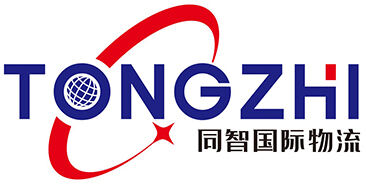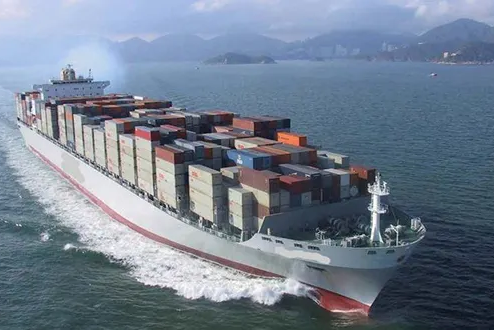A tárolószállítás a globális kereskedelem gerincét képezi, lehetővé téve az áruk hatékony és biztonságos mozgatását világszerte. A nemzetközi kereskedelem folyamatos növekedésével a vállalatoknak meg kell érteniük a tárolószállítás finomságaival, hogy optimalizálják logisztikai műveleteiket. Ez a cikk a legjobb gyakorlatokra és a fontos szempontokra tekintettel vizsgálja a tárolószállítás hatékonyságának maximalizálását.
A tárolószállítás ismertsége
A tárolószállítás áruk nagy, szabványos tárolókban történő szállítását jelenti. Ezek a tárolók különböző méretekben érkeznek, a leggyakoribb a 20 láb és a 40 láb méretű tárolók. A szabványozás lehetővé teszi a hajók, kamionok és vonatok közötti zökkenőmentes átváltást, ami egy versengőképességgel és hatékonysággal bíró szállítási módot tesz lehetővé.
A tárolószállítás fő előnyei
Hatékonyság: A tárolók olyanok, hogy könnyen kezelhetőek és verembe rakhatók, ami gyorsabb betöltést és kiürítést eredményez a kikötőkben. Ez az efficiencia gyorsabb átmenet időt és csökkentett költségeket eredményez.
Biztonság: Az áruk a tárolókban való szállítása kevesebb kockázatot jelent a sértés és a megszivárgás szempontjából. A tárolók robust konstrukciója jól véd az elemek ellen és a potenciális ellopások ellen.
Költséghatékonyság: A tárolószállítás általában költséghatékonyabb más szállítási módoknál, különösen az internacionális hosszútú szállítások esetén. A több küldetés egyesítése egy tárolóba tovább csökkenti a költségeket.
Versenyképesség: A tárolók széles körű termékek szállítására alkalmasak, többé-kevésbé nyersanyagoktól és gépjárművektől élelmiszerekig és késztermékekig. Specializált tárolók, például hűtött egységek (reefer), konkrét igényekre, mint a hőmérséklet-ellenőrzésre vonatkoznak.
Legjobb gyakorlatok a tároló-szállítás terén
A megfelelő tároló típusának kiválasztása
A megfelelő tároló típusának kiválasztása döntő ahhoz, hogy biztosítsuk az áruk biztonságos és hatékony szállítását. A standard száraz tárolók alkalmasak a legtöbb típusú tervetelre, de a vállalatok fontolnivalók specializált tárolókat konkrét igények esetén:
Hűtött tárolók (Reefer): Élelmiszeri áruk számára, amelyeknek hőmérséklet-ellenőrzésre van szükségük.
Nyitott tetőjű tárolók: Áruk számára, amelyek nem férnek be egy standard tárolóba.
Egyszintes tárolók: Nehéz és nagyobb méretű elemek számára, mint például gépek és járművek.
Tároló használatának optimalizálása
A rendelkezésre álló tér optimális kihasználata egy tárolóban jelentős mértékben csökkentheti a szállítási költségeket. A vállalkozásoknak:
Jól csomagolja és verészi el a termékeket: Győződjön meg arról, hogy a termékek szorosan és biztonságosan vannak csomagolva, hogy elkerülje az átvitel közbeni elmozdulást.
Pallet és skid használata: Kínál egy könnyebb kezelést és hatékony terület-használatot.
Súly eloszlásának egyensúlyozása: Egyenlő súly-eloszlást biztosítson annak érdekében, hogy fenntartsa a stabilitást és elkerülje a kártyát.
Speciális nyomon követő rendszerek bevezetése
A küldemények valós idejű nyomon követése és figyelése értékes információkat tesz közzé és növeli a láthatóságot a szállítási folyamat során. A speciális nyomon követő rendszerek lehetővé teszik:
Valós idejű helyzet frissítések: Tartsa naprakészen a vállalatokat a küldemények helyéről és státuszáról.
Állapot monitorozás: Győződjön meg arról, hogy a hőmérsékleti érzékeny termékek a szükséges tartományon maradnak.
Előrejelzési elemzések: Várható késések előrejelzése és útvonalak optimalizálása gyorsabb szállítás érdekében.
Mentessé tekerje ki a szabályozásokat
A nemzeti szállítási szabályozások betartása alapvető ahhoz, hogy kerülje el a késéseket és büntetéseket. A vállalkozásoknak kell:
Tartsd naprakészen a kereskedelmi szabályokról: kövesd nyomon a külkereskedelmi törvényeket és az egyes célhelyek érvényeségi feltételeit.
Helyes dokumentumok előkészítése: győződj meg róla, hogy minden szükséges dokumentum, például a tárolási jogcímek, az eredetbizonyítványok és az érvényeségi nyilatkozatok helyesen kitöltve vannak és időben benyújtva lettek.
Tapasztalt érvényeségi ügynökkal való munka: foglalkozz a sikeres érvényeségi feldolgozással és minimalizáljuk a betartás problémáira vonatkozó kockázatot.
Technológia használata növelte a hatékonyságot
A technológia kulcról játszik fontos szerepet a konténzshipping műveletek optimalizálásában. A vállalatoknak ezt kell alkalmazniuk:
Kikötés-kezelési szoftver: egyszerűsítse a fogadás, dokumentáció és követés folyamatát.
Automatizált térmegkezelési rendszerek: gyorsítsa meg a betöltési és kibocsátási műveleteket a kikötésen.
Blockchain technológia: növelje átláthatóságát és biztonságát a szállítási láncban, amely biztosítja a tranzakciók és mozgások változhatatlan rekordját.
Fontos szempontok a konténzshipping tekintetében
Költségkezelés
A szállítási költségek jelentősen befolyásolhatják egy vállalat profitját. A költségek kezelésének kulcsstratégiái közé tartoznak:
Szállítások konszolidálása: Több szállítást egy konténnerbe összevonva hasznosíthatóak a méretek szerinti előnyök.
Szerződések megkötése: Jóságos árakat és feltételeket biztosítható el szállítói társaságokkal és tukorozókkal.
Útvonalak optimalizálása: Válassza ki a leghatékonyabb és leggazdaságosabb útvonalakat a túlerő idők minimalizálásához és az üzemanyagfogyasztás csökkentéséhez.
Kockázatkezelés
A konténerekkel járó szállítási kockázatok kezelése alapvetően fontos a tételek biztonságos és időben történő kézbesítéséhez. Vegye figyelembe a következőket:
Biztosítási fedettség: Védje magát a potenciális
veszteségek ellen, mint például kártevés, lopás vagy késés miatt.
Katasztrófa-tervek kidolgozása: Készítsen terveket a váratlan zavarok kezelésére, például a belföldi havarékok vagy természeti katastrofák esetén.
Rendszeres ellenőrzések: Végezzen ellenőrzéseket a szállítási folyamatok és partnerei tekintetében a kockázatok azonosítására és csökkentésére.
Társadalmi felelősségű gyakorlatok
A fenntarthatóság egyre fontosabb a globális logisztikában. A vállalkozások eco-barát gyakorlatokat vezethetnek be, például:
Üzemanyag-előnyös hajók használata: Válasszon olyan küldetési szolgáltatókat, amelyek modern, üzemanyag-előnyös hajókat használnak a szén-dioxid-kibocsátás csökkentése érdekében.
Zöld csomagolási megoldások bevezetése: Használjon újrahasznosítható és bontatható csomagolási anyagokat az környezeti hatás minimalizálása érdekében.
Szén-kibocsátás kompenzálása: Végre házi szén-kompensációs programokban való részvétel a küldetési tevékenységek környezeti nyománynak enyhítése érdekében.
Következtetés
A tárolószállítás fontos összetevője az nemzetközi kereskedelemnek, mivel hatékonyságot, biztonságot és költséghatékonyságot kínál. A legjobb gyakorlatok alkalmazásával, például a megfelelő tároló típus kiválasztásával, a tároló használatának optimalizálásával, a haladó nyomon követő rendszerek kihasználásával, a szabályozási megfelelőség garantálásával és a technológia elfogadásával, a vállalatok maximalizálhatják a tárolószállítás előnyeit. Emellett a költségek kezelése, a kockázatok enyhítése és a fenntarthatósági gyakorlatok elfogadása alapvető a versenyképesség fenntartásához a globális piacoon.







































